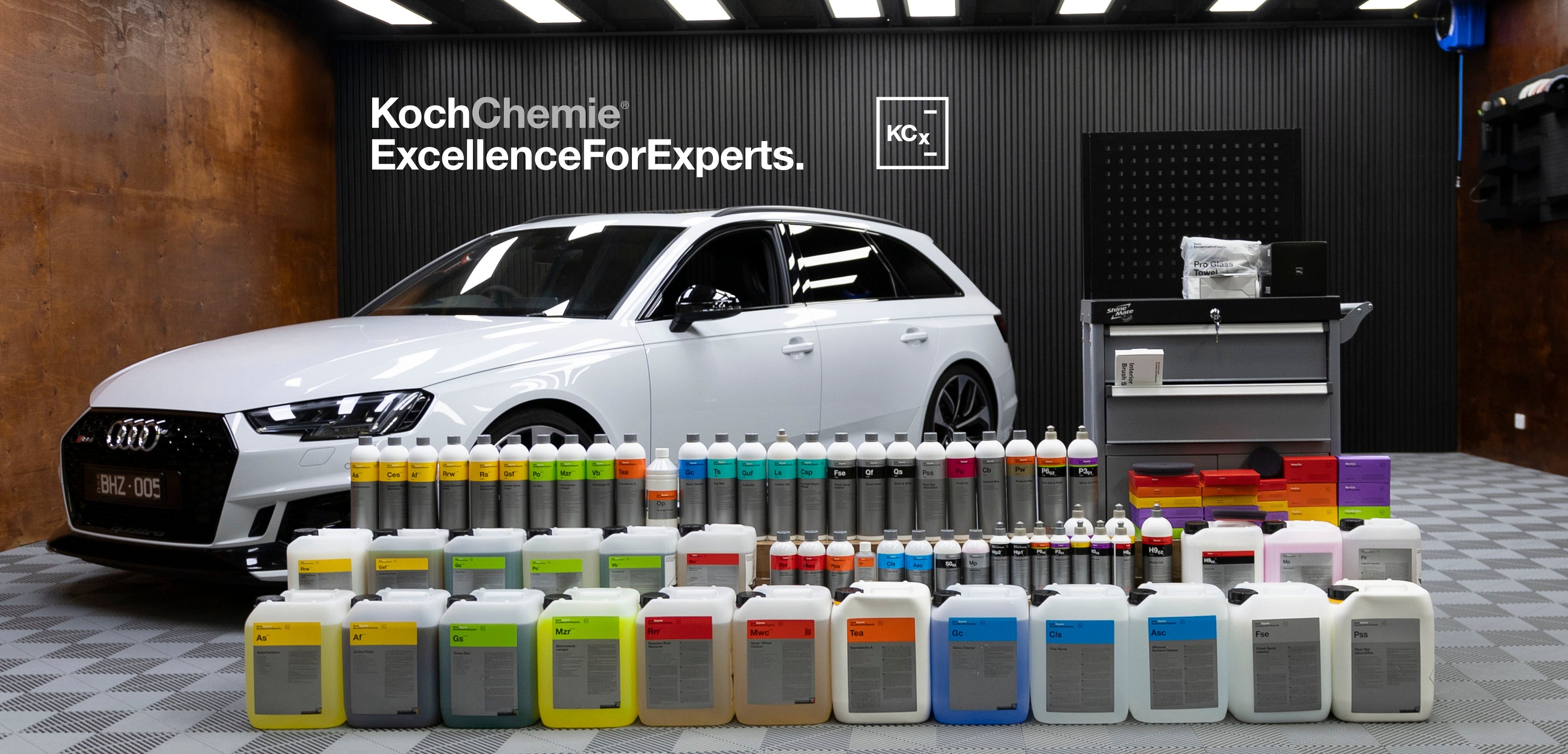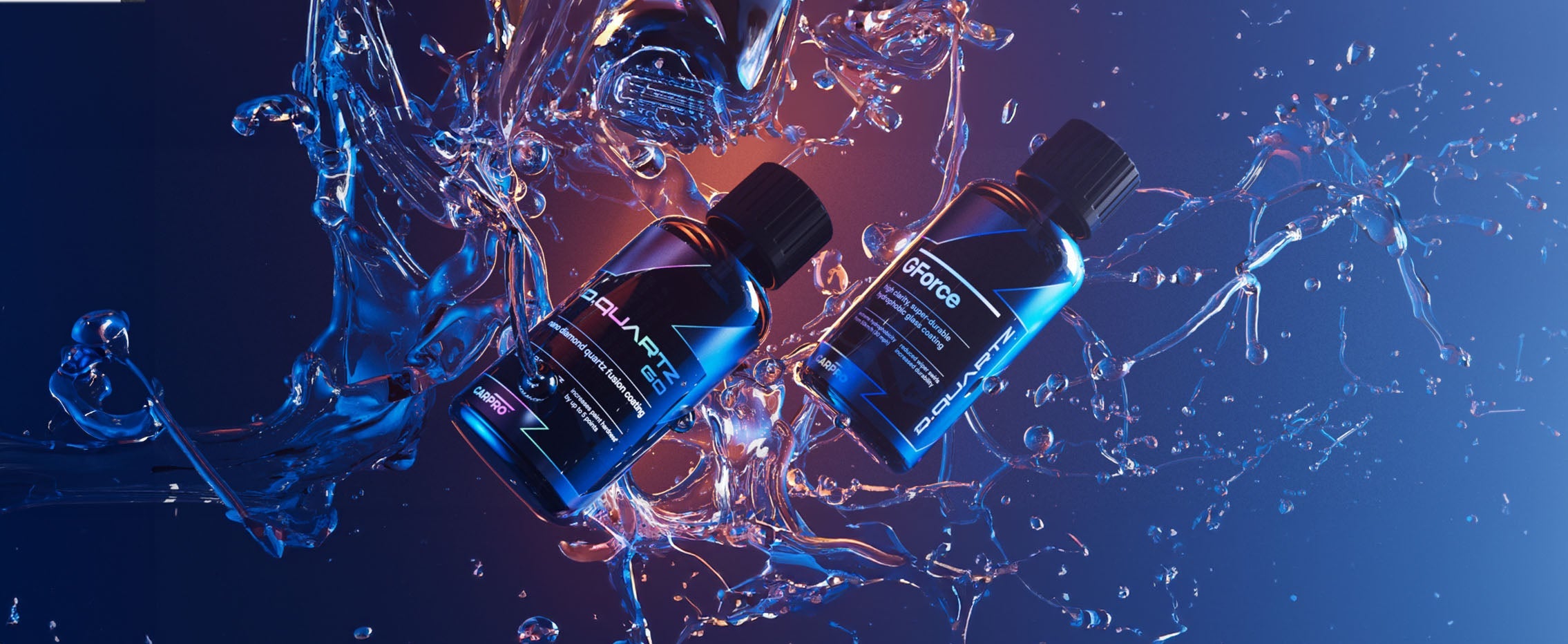Polishing Your Glass
Your Glass is just another surface on your vehicle that can be polished just like your vehicle's paintwork. Polishing your glass can be a fantastic way to give it a super clean as well as remove minor defects while improving its clarity and look.
Why Polish Your Glass?
There are a variety of reasons on why you should polish your glass to remove any imperfections, and/or scratches.
-
From a safety perspective, stained, contaminated, and foggy car glass can largely mask your ability to clearly see the road. Keeping your glass clean, clear, and free of any imperfections can prevent possible incidents due to a lack of clear vision on the road.
-
Stubborn defects such as water-spots, bird poo etchings, and minor scratches/swirls can also be removed when polishing your glass. This will greatly improve its visual appearance
-
Polishing your glass will also help remove more embedded grime, which can happen over time when the glass is not regularly cleaned, or well maintained.
-
Giving the glass a polish prior to applying protection (such as a ceramic coating) will massively increase that coatings' performance and durability.

(ShineMate EX610 15mm Polisher | Shine Supply Glass Polish)
How to Polish Glass
Most glass specific polishes tend to use solvents & aggressive abrasives to remove day to day environmental buildup, staining, and water spots. A car paint polish or compound with a microfibre or wool pad is also a fantastic way to remove that contamination and restore clarity.
Although you can certainly hand polish automotive glass it will tend to be a far quicker and more effective process using a DA or rotary car polisher.
When polishing your glass you must ensure the glass has been washed prior to polishing it. The actual process is very similar to polishing car paint, in that you’ll apply a small amount of your polish to a pad and run your machine (or hand pad) over a section of the glass using 3-4 multiple passes to complete each section of the glass.
You’ll then use a microfibre cloth to wipe the polish residue off followed by a panel wipe or even a glass cleaner to remove the polishing oils and any lingering residue. Around the edges of the glass, it will be more effective to use a mini polisher with a smaller pad or even polish those tight edges by hand.
It’s also important to note that the interior side of the glass can be sometimes far dirty than the exterior glass particularly if the interior glass isn’t regularly cleaned, in which case it develops a yellowish film of grime. The same practice can be also used to clean the interior glass, however, if the glass is tinted you should avoid using abrasive polishes and stick to just nonabrasive glass polishes.
In cases where the exterior glass is extremely contaminated with water spots and etching or fine swirls, a rotary polisher with a wool pad and heavy cutting compound is best to use, and you’ll also need to work smaller sections at a time to achieve effective results.
Once the glass is completely polished and clean, it’s best to place a more specific glass sealant or coating on it to protect the finish and keep the glass looking cleaner for longer - as on windscreens, certain generic sealants and coatings can lead to wiper chatter in the rain.
What to look out for when Polishing Glass.
Glass is extremely hard compared to car paint, and takes a lot of time and work to remove defects.
Due to the hardness of glass minor swirls can be removed, while more significant swirls and scratches will need more specialized diamond cutting discs used by a specialized glass polisher to have success.
As glass is quite rigid with little to no flex in its structure, it’s important that you don’t concentrate too much heat in one spot while you polish it, as it can cause damage to the glass.
 (ShineMate EX605 12mm DA Polisher)
(ShineMate EX605 12mm DA Polisher)
What else should I know about Polishing Glass?
The best way to maintain glass is with regular light cleaning to prevent the buildup of environmental grime. The use of a specialized glass cleaner and a microfiber cloth will make this so easy, and extremely effective.
Although glass is harder and more scratch-resistant than paint it can still scratch, so always use safe car washing methods on your glass as well.
Because glass is so hard there is very little chance of causing a haze or marring it during the polishing stage - unlike paint.







 (
(
